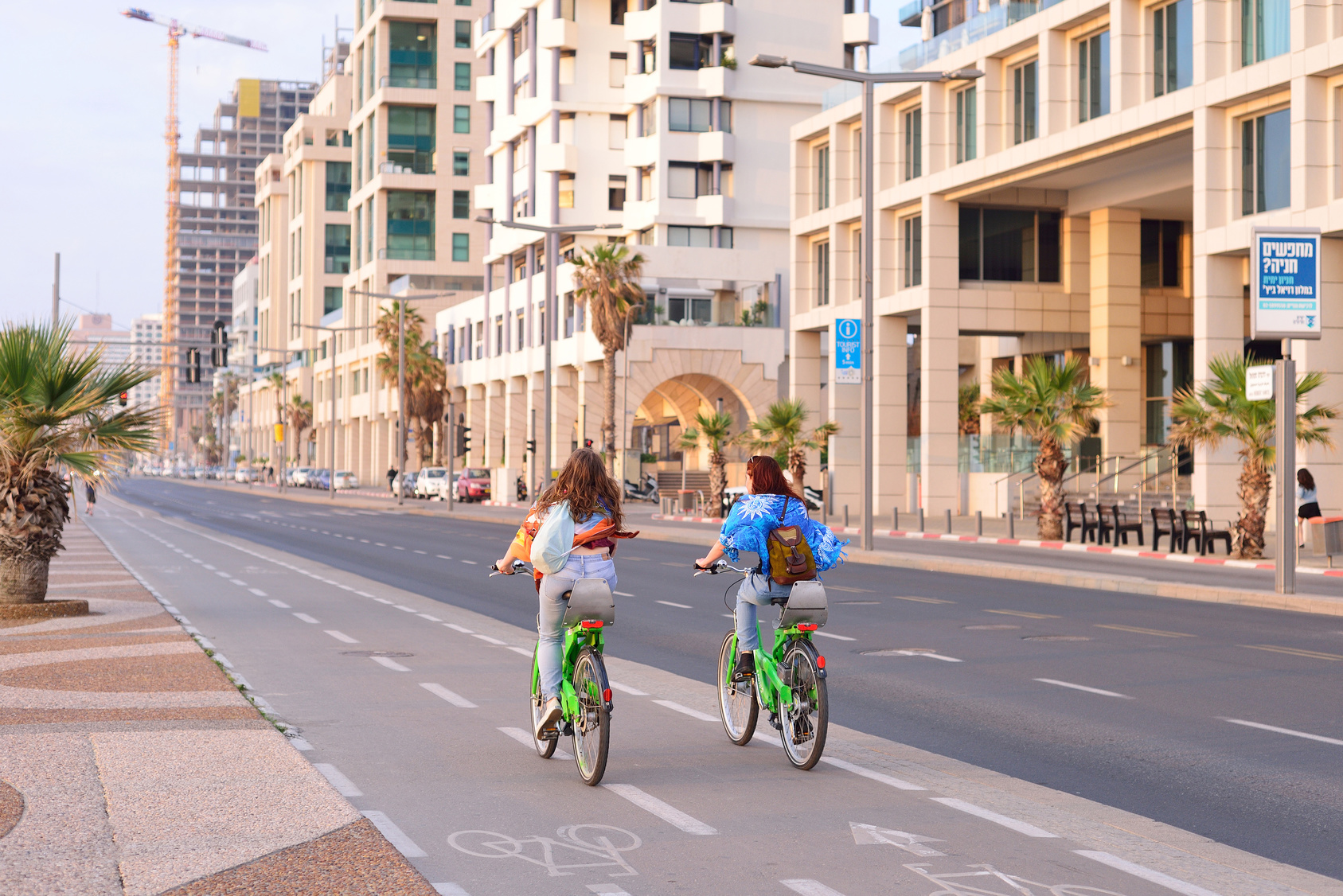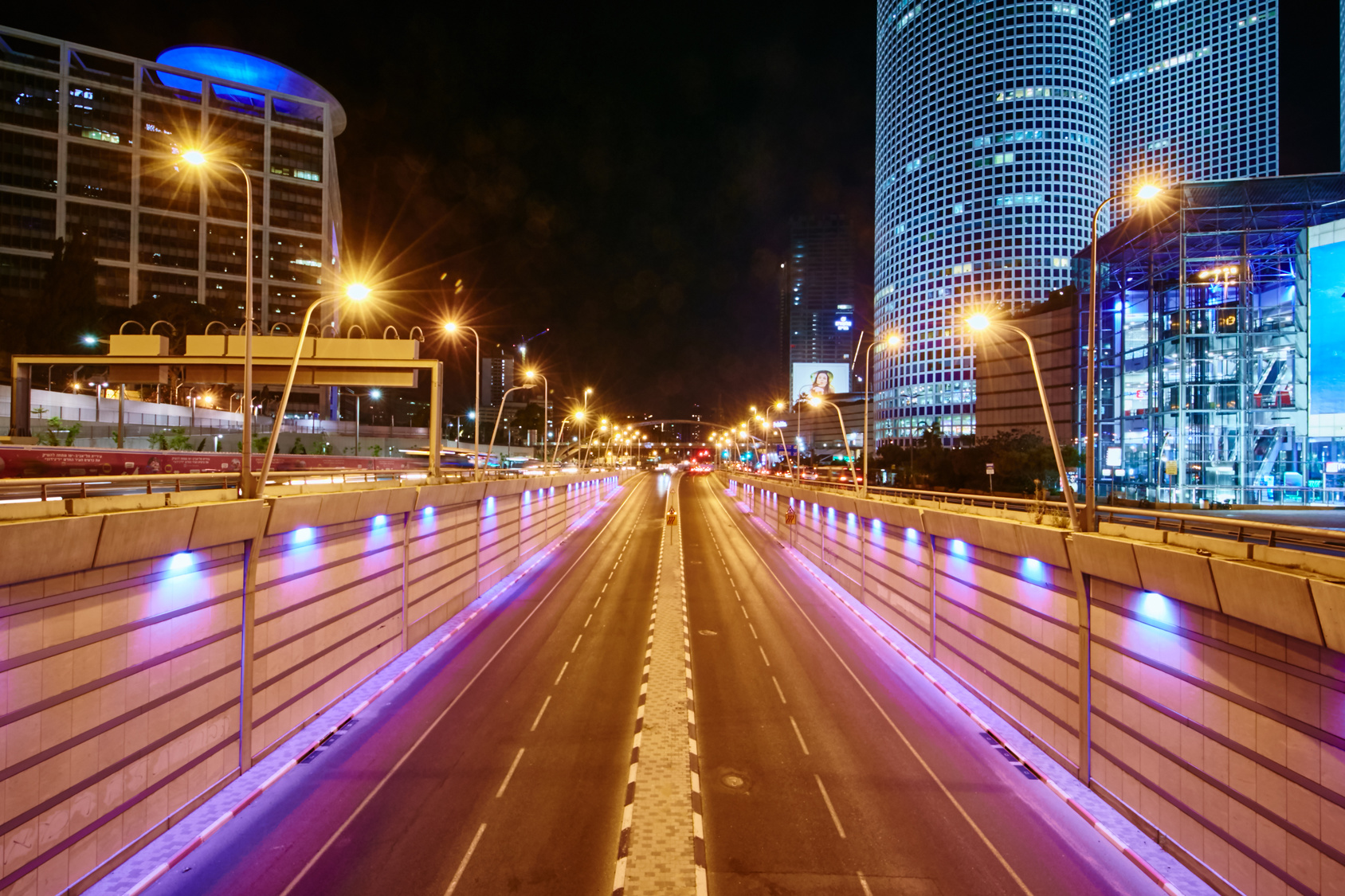Driving
Unless you intend to use Tel Aviv as the base for a hub and spoke holiday, returning to the city each evening after a day of self-drive tourism, you won't need a car during your stay. Nevertheless, if you bring your home driver’s license or an international license (and don't mind urban traffic), you can drive in Tel Aviv and (age permitting) rent a car. The larger car rental companies maintain a rental station at Ben Gurion International Airport, and rental vehicles from them and smaller companies to are available at any number of stations in the Greater Tel Aviv area.

Herbert Samuel st. bike
Curbside parking is at a premium in Tel Aviv – and in Herzliya and Bat Yam as well, though to a lesser extent - but a sufficient number of commercial parking lots in most parts of the city, means that you will usually have little difficulty finding a space for your vehicle.
If you are lucky enough to find a parking spot on the street, check the street signs for a pink medallion-like icon, which indicates that the spot is reserved for local residents only, after 5 or 7 PM. Parking can be paid for at street meters, which dispense a ticket to place on your dashboard, or by means of a Smartphone app like Pango or Cellopark.
On the Road
Israel’s road system is like that of America and Continental Europe, and driving is on the right-hand side of the road. Traffic signs are in Hebrew and English in most places, and sometimes also in Arabic. Most of the pictograms on road signs will be familiar to travelers from abroad.
On the interurban highways connecting Tel Aviv with Bat Yam or Herzliya (and the Greater Tel Aviv region with the airport), speed limits are between 90 to 110 kph; on (non-highway) urban roads 80 kph is the limit, while on roads passing through built-up neighborhoods, speed is limited to 50 kph.

Tel aviv Azrieli center and transport
Seat belts are compulsory 24 hours a day both for drivers and passengers no matter where they sit in the car, although only passengers above the age of 14 can ride up front. From 1 November to 31 March, the headlights on private cars traveling along inter-urban roads must always be lit.
There are enough gas (petrol) stations in Israel so that with any amount of sensible planning, you’ll always be able to fill your tank. Note that some stations are closed at night and others shut down from Friday sundown to sundown on Saturday night in observance of the Jewish Sabbath and are also closed on Jewish religious holidays. At many stations, a night surcharge is added to the bill.
According to law, every station must have at least one self-service pump, where the price of the gas is lower than for the other full-service pumps. Operating instructions are in Hebrew, but (if you share a language in common with them) the attendants will be pleased to explain how the pumps operate.